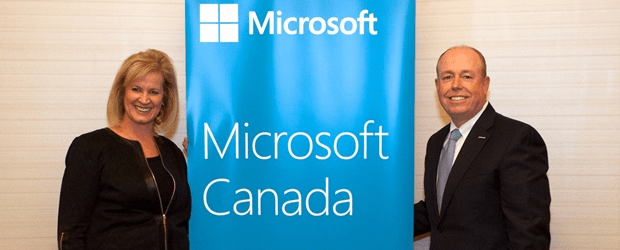One of Microsoft Canada’s cloud solution providers NetDexterity has inked a deal with DocuSign Inc. to help the company develop digital transformation solutions for Office 365.
With DocuSign, NetDexterity will be able to eliminate printing, scanning and even faxing of documents. Through DocuSign solutions overnighting documents will also be a thing of the past, the company said.
Glenn Griffin, vice president of business development at DocuSign said NetDexterity will join the DocuSign Global Trust Network, which consists of more than 100,000 companies and more than 50 million users in 188 countries.
Previous to the DocuSign partnership, NetDexterity provided Information Management solutions on the Microsoft Cloud. Another aspect of the DocuSign solution is security. NetDexterity plans to embed DocuSign into ND|Apps on Office 365. The company’s other solution ND|Manage will also have DocuSign and that offering focuses on maximizing the value of information in the context of an end user’s work through the integration of eSignatures.
Steve Kopstick, President at NetDexterity, said DocuSign eliminates the administration and cost associated with paper so companies can operate fully digitally and make Digital Transaction Management a global standard. DocuSign’s secure, cloud-based platform is trusted by companies and consumers around the world.
The DTM market is valued between $500 million to $700 million today, but has the potential to grow to $30 billion by 2020, according to sources.
The DTM standard has made some headway recently after a conference in Barcelona. Heather Petersen, executive director of the xDTM Standard Association, said rapid progress on version 1.0 of the xDTM standard has been made with support from individuals and organizations around the world to help capture worldwide trust for DTM systems to be secure and reliable for their online and mobile transactions.
The inaugural European conference also allowed the xDTM Standard Association to confirm the overall scope and direction of its compliance program, with the intent of launching xDTM Standard compliance requirements in conjunction with version 1.0 of the xDTM Standard.
“Ultimately, the work of the xDTM Standard Association is to ensure that providers meet and exceed the xDTM Standard requirements for security, privacy, availability, interoperabilty, and other critical elements as agreed to by this independent, global body,” said Tom Pageler, chairman of the board of the xDTM Standard Association.
The association has outlined seven requirements for DTM. They are:
- Security – features best-in-class technical protection, highly secure access, and proactive protection policies
- Compliance – conforms to industry policies, standards, and laws, and engages recurring third-party auditing or self-assessment to verify compliance
- Privacy – adheres to the strictest privacy policies and allows a person or company to reveal information selectively, at their discretion
- Enforceability – has a reliable, transparent, and verifiable chain of custody, and a digitally signed, tamper-evident audit trail
- Availability – is always accessible and obtainable
- Scalability – accepts increased volume without impacting performance
- Universality – functions across heterogeneous environments/devices and is accessible worldwide
- Interoperability – works across collaborative services environments and includes open gateways and APIs





